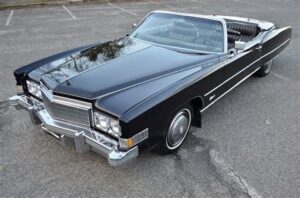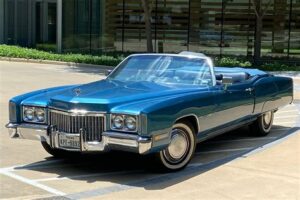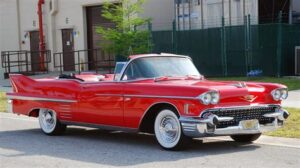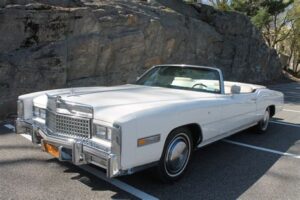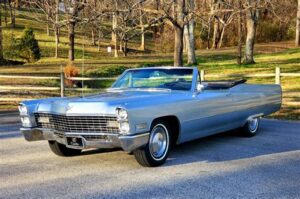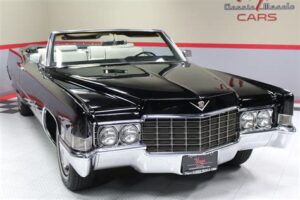Explore the 2013 Cadillac ATS, learn about catalytic converters, their common issues, and how to choose and replace them effectively.The 2013 Cadillac ATS has garnered attention for its luxurious features and impressive performance, making it a popular choice among car enthusiasts. However, like any vehicle, it comes with its own set of maintenance concerns, particularly regarding its catalytic converter. This essential component plays a critical role in reducing harmful emissions and ensuring your vehicle operates efficiently. Unfortunately, catalytic converters can develop issues over time, leading to decreased performance and potential damage to your vehicle. In this blog post, we’ll explore the ins and outs of the 2013 Cadillac ATS, highlight the importance of the catalytic converter, discuss common issues that can arise, and provide guidance on replacement options. Whether you’re facing a malfunction or simply want to be proactive about your vehicle’s health, understanding these components is key to maintaining your Cadillac’s performance and longevity.
Understanding the 2013 Cadillac ATS
The 2013 Cadillac ATS marks a significant entry into the luxury compact sedan market. Combining performance, style, and technology, the ATS was designed to compete with established brands like BMW and Audi. With a lightweight structure and responsive handling, it creates an engaging driving experience that appeals to enthusiasts.
Under the hood, the 2013 Cadillac ATS offers multiple engine options including a powerful turbocharged four-cylinder and a robust V6, both providing impressive acceleration and fuel efficiency. The vehicle’s rear-wheel drive layout enhances its performance attributes, while an optional all-wheel-drive system increases versatility and control, making it suitable for a variety of driving conditions.
Inside, the 2013 Cadillac ATS features a blend of luxury materials and advanced technology. The minimalist dashboard is accentuated by an intuitive touchscreen interface that integrates the latest infotainment features. Safety is also a priority, with multiple standard and optional features designed to keep drivers and passengers protected on the road.
| Engine Option | Horsepower | Fuel Economy (MPG) |
|---|---|---|
| Turbocharged 2.0L I4 | 272 hp | 21 city / 31 highway |
| 3.6L V6 | 321 hp | 19 city / 28 highway |
Importance of the Catalytic Converter
The catalytic converter is a crucial component of your vehicle’s emissions control system. It plays a significant role in reducing harmful emissions produced by the engine. By converting toxic gases into less harmful substances, the catalytic converter helps in lessening the environmental impact of driving.
In modern vehicles like the 2013 Cadillac ATS, the catalytic converter works in conjunction with various sensors to monitor and manage emissions. This ensures that your car adheres to environmental regulations and maintains optimal performance. A well-functioning catalytic converter is essential not only for compliance but also for the overall efficiency and longevity of your vehicle.
Moreover, if the catalytic converter malfunctions, it can lead to several issues, including decreased engine performance, reduced fuel efficiency, and increased emissions. This underscores the importance of regular inspections a
Common Catalytic Converter Issues
The catalytic converter is a vital component of a vehicle’s exhaust system, playing an essential role in reducing harmful emissions and ensuring compliance with environmental standards. However, like any automotive part, it can encounter a range of issues that affect its performance. Understanding these common problems can help car owners take proactive measures to maintain the health of their vehicle.
Here are some common catalytic converter issues that you may encounter:
- Clogging: A blockage in the catalytic converter can restrict exhaust flow, leading to engine performance issues and increased emissions.
- Overheating: Excessive heat can damage the converter’s internal components, typically caused by running a rich fuel-to-air ratio or misfiring cylinders.
- Physical Damage: External factors such as road debris or harsh driving conditions can cause dents or cracks, impacting the converter’s efficiency.
- Internal Failures: Over time, the catalyst material inside can degrade, resulting in poor emission control and a failed emissions test.
Identifying these issues early on can save you significant costs in repairs and replacements. It’s essential to monitor your vehicle for signs such as check engine lights, unusual noises, or noticeable drops in performance — all of which may indicate that the catalytic converter needs attention.
Maintaining your vehicle with regular check-ups and prompt action can mean the difference between a simple service and a complete rep
Replacing a Faulty Catalytic Converter
The catalytic converter is a crucial component of your vehicle’s exhaust system, and it plays an essential role in reducing harmful emissions. If you own a 2013 Cadillac ATS and you suspect that your catalytic converter is faulty, timely replacement is important not only for your vehicle’s performance but also for adhering to environmental regulations.
When replacing a faulty catalytic converter, there are a few steps you should follow:
- Diagnosis: Use an OBD-II scanner to identify error codes related to the catalytic converter.
- Assessment: Visually inspect the exhaust system and the converter for signs of physical damage or blockages.
- Removal: Safely lift the vehicle and disconnect the exhaust pipes to remove the old catalytic converter.
- Installation: Install the new catalytic converter by following the manufacturer’s guidelines to ensure a proper fit.
- Testing: After installation, take your vehicle for a test drive to ensure that the issue has been resolved and check for any error codes.
When selecting a new catalytic converter for your 2013 Cadillac ATS, consider the quality and the emissions requirements in your area. Opting for an OEM (Original Equipment Manufacturer) part may be the best route to ensure compatibility and longevity. Always consult a professional if you feel unsure about any part of the replacement process.
Choosing the Right Catalytic Converter
When it comes to ensuring the optimum performance of your 2013 Cadillac ATS, selecting the right catalytic converter is crucial. This component plays a vital role in controlling emissions and maintaining the efficiency of your vehicle. A well-chosen catalytic converter not only adheres to regulatory standards but also enhances the performance of your ATS.
There are several factors to consider when choosing the right catalytic converter for your 2013 Cadillac ATS:
- Compatibility: Ensure that the catalytic converter model is compatible with your ATS’s engine specifications.
- Emission Standards: Verify that the unit meets local and federal emission standards.
- Material Quality: Opt for converters that are made from high-quality materials to enhance durability.
Additionally, you may encounter different types of catalytic converters in the market, including OEM (Original Equipment Manufacturer) and aftermarket options. While OEM parts are designed to meet the manufacturer’s specifications, aftermarket options may offer greater flexibility and potentially lower prices.
Frequently Asked Questions
What is the function of a catalytic converter in the 2013 Cadillac ATS?
The catalytic converter in the 2013 Cadillac ATS helps reduce harmful emissions by converting toxic gases produced during combustion into less harmful substances before they are released into the atmosphere.
What are the signs of a failing catalytic converter in a 2013 Cadillac ATS?
Signs of a failing catalytic converter in a 2013 Cadillac ATS can include a decrease in engine performance, unusual noises (such as rattling), a sulfur smell, or a check engine light indicating an emissions issue.
How much does it cost to replace the catalytic converter on a 2013 Cadillac ATS?
The cost to replace the catalytic converter on a 2013 Cadillac ATS can range from $1,000 to $2,500, depending on labor costs and whether you choose an original equipment manufacturer (OEM) or aftermarket part.
Can I drive my 2013 Cadillac ATS with a damaged catalytic converter?
While you can technically drive a 2013 Cadillac ATS with a damaged catalytic converter, it’s not advisable as it can lead to more severe engine problems and may not pass emissions testing.
What are some preventative maintenance tips for prolonging the life of a catalytic converter in a 2013 Cadillac ATS?
Preventative maintenance tips include regularly servicing your vehicle, ensuring the engine runs properly, using high-quality fuel, and avoiding overloading your vehicle to prevent excessive emissions.
Is there a warranty for the catalytic converter on a 2013 Cadillac ATS?
Many manufacturers provide a warranty for catalytic converters that generally lasts up to 8 years or 80,000 miles, but it is essential to check your specific vehicle’s warranty documentation for details.
What should I do if my 2013 Cadillac ATS shows a check engine light related to the catalytic converter?
If your 2013 Cadillac ATS shows a check engine light related to the catalytic converter, it’s recommended to have the vehicle diagnosed by a professional mechanic as soon as possible to determine the underlying issue.
